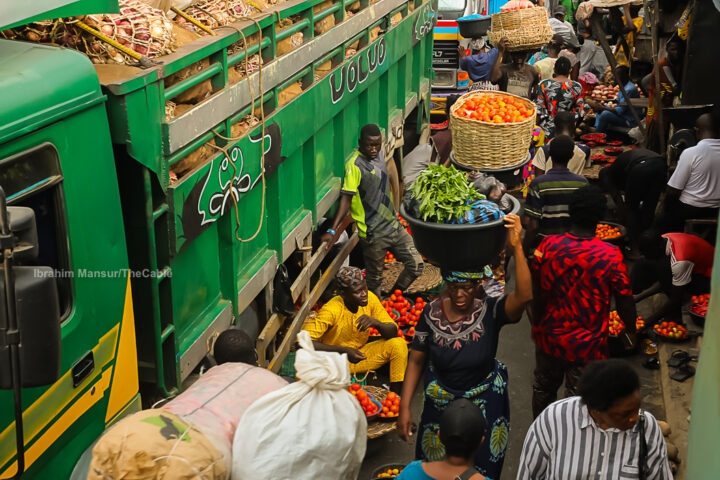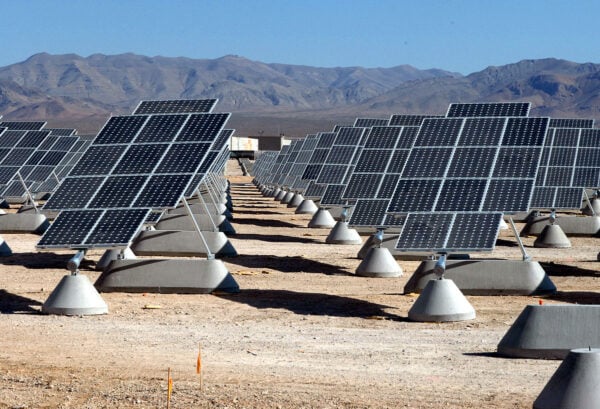The National Bureau of Statistics (NBS) says Nigeria’s headline inflation rate has dropped to 18.02 percent in September 2025.
The NBS announced the increase in its consumer price index (CPI) report on Wednesday.
The latest rate is the lowest in three years, as 2022 (in June) was the last time the country’s headline inflation hit the 18 percent region, according to data from Nigeria’s central bank.
The NBS said the current inflation rate, on a year-on-year basis, “was 14.68% lower than the rate recorded in September 2024 (32.70%)”.
Advertisement
“This shows that the Headline inflation rate (year-on-year basis) decreased in September 2025 compared to the same month in the preceding year (i.e., September 2024),” the bureau said.
“However, on a month-on-month basis, the Headline inflation rate in September 2025 was 0.72%, which was 0.02% lower than the rate recorded in August 2025 (0.74%).
“This means that in September 2025, the rate of increase in the average price level was lower than the rate of increase in the average price level in August 2025.”
FOOD INFLATION RATE DECLINES TO 16.87%
Advertisement
The statistics firm also said the food inflation rate for September 2025 was 16.87 percent year-on-year.
This, the NBS said, is 20.9 percent lower compared to the rate recorded in September 2024 (37.77 percent).
“On a month-on-month basis, the Food inflation rate in September 2025 was -1.57%, down by 3.22% compared to August 2025 (1.65%),” the report said.
“The decrease can be attributed to the rate of decrease in the average prices of Maize (Corn) Grains, Garri, Beans, Millet, Potatoes, Onions, Eggs, Tomatoes, Fresh Pepper etc.
Advertisement
“The average annual rate of Food inflation for the twelve months ending September 2025 over the previous twelve-month average was 24.06%, which was 13.47% points lower compared with the average annual rate of change recorded in September 2024 (37.53%).”
In the month that under review, the NBS said food inflation, on a year-on-year basis, was highest in Ekiti (28.68 percent), Rivers (24.18 percent), and Nasarawa (22.74 percent); while Bauchi (2.81 percent), Niger (8.38 percent), and Anambra (8.41 percent) recorded the lowest rise.
On a month-on-month basis, however, the bureau noted that food inflation was highest in Zamfara (15.62 percent), Ekiti (12.77 percent), and Sokoto (12.55 percent).
The agency said Akwa Ibom (-12.97 percent), Borno (-12.95 percent), and Cross River (-10.36 percent) recorded a decline in food inflation on a month-on-month basis.
Advertisement
Nigeria’s inflation rate has been slowing down since April this year — with the latest being the sixth consecutive decline.
Lukman Otunuga, a senior research analyst at Forex Time (FXTM), had linked the easing inflationary pressure to “a combination of softer food prices and a strengthening naira”.
Advertisement
At the last monetary policy committee (MPC) meeting in September, the Central Bank of Nigeria (CBN) cut the interest rate to 27 percent for the first time in five years, following a consistent slowdown in inflation.
“This deceleration underpinned by monetary policy tightening, exchange rate stability, increased capital inflows and surplus current account balance have helped to broadly anchor inflation expectations,” Olayemi Cardoso, the CBN governor, had said.
Advertisement
Other factors that contributed to the deceleration, according to Cardoso, were the continued moderation in the price of petrol and the notable increase in crude oil production.
Advertisement











